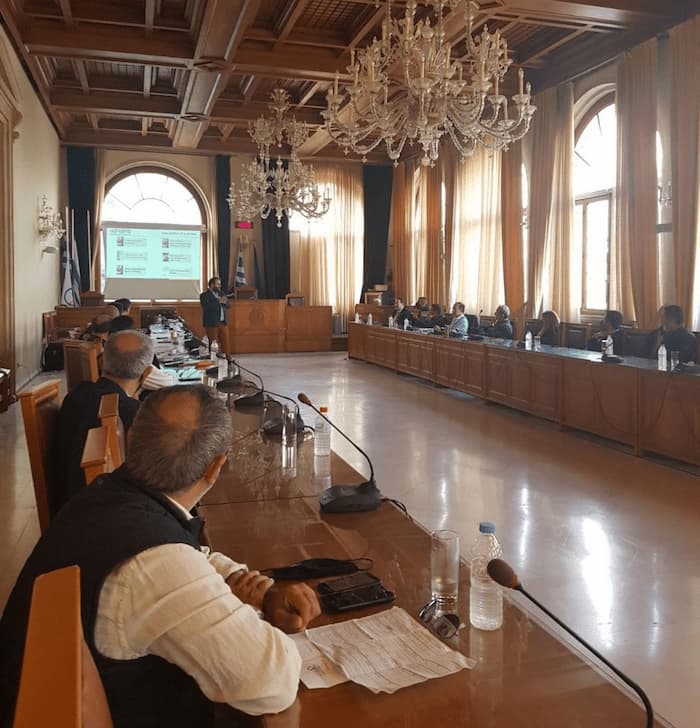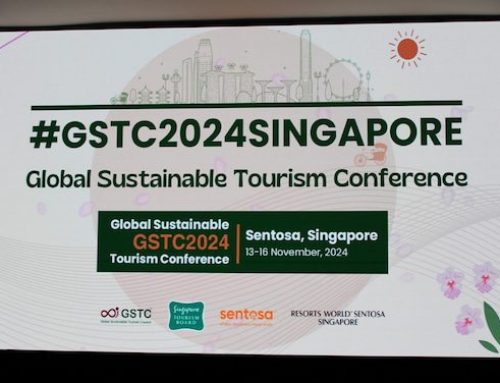April 2022 – The Global Sustainable Tourism Council (GSTC) conducted a Destination Assessment of Heraklion, Greece, from March to December 2021. The Destination Assessment was led by Dr. Ioannis Pappas, GSTC Program Director for the Mediterranean Region, working closely with Heraklion’s authorities.
Heraklion Tourism Overview
Heraklion is the largest region of Crete and a major tourist destination in Greece and Europe. Tourism is one of Crete’s primary industries, with 5,287,600 international visitors and 4,573,656 international visitor hotel arrivals in 2019, of which about 44% visited the region of Heraklion. Tourism is a major economic source for the region of Heraklion. The total direct revenue from tourism for 2019 was 3.6 billion euros.
Heraklion also has the biggest port on the island in regard to cruise passenger numbers, with 307,043 arrivals in 2019. More than 1.7 million passengers arrived by ferry in the same year, either for tourism or other purposes. The port has an annual passenger capacity of up to 0.5 million for cruise tourism, hosting up to 5 cruise ships at once. While boosting Heraklion’s economy, this growth is unavoidably linked with operational difficulties and challenges to the city’s social, cultural and environmental resources.
GSTC Destination Sustainability Assessment of Heraklion
In December 2020, city leaders in Greece teamed up with the Global Sustainable Tourism Council (GSTC) and Cruise Lines International Association (CLIA) to assess the sustainability status of the municipalities of Corfu and Heraklion and to map out plans for a future of sustainable tourism. The city leaders in Corfu and Heraklion agreed with the two global organizations to co-fund a sustainability assessment of each destination. The Heraklion Port Authority and the Corfu Port Authority participated as valuable strategic partners in the endeavour. Thus, the GSTC Destination Assessment was co-funded by CLIA, Heraklion Port Authority and the Municipality of Heraklion to collaboratively address tourism sustainability in the city.
The GSTC Destination Criteria covers four pillars of destination sustainability: destination policy and planning, community involvement and benefits, management of cultural assets, and management of environmental and natural resources. Dr. Ioannis Pappas (the “GSTC Assessor”) conducted the Destination Assessment from March to December 2021, working closely with Heraklion’s authorities during a difficult period of the Covid-19 pandemic restrictions.
To evaluate the County’s performance against the GSTC Destination Criteria V2.0, the GSTC reviewed law and policy documentation governing city management, and consulted about 60 key stakeholders and leading organizations from national and local government, private sector, NGOs and academia, and residents, through extensive virtual and on-site meetings to evaluate the Heraklion’s performance against the GSTC Destination Criteria.
Commitments to adhere to the GSTC Destination Criteria

In the words of the Mayor of Heraklion, Vassilis Lambrinos, “In Heraklion, the economic and tourist capital of Crete, the municipality is responding to the challenges of our times by taking the bold step of evaluating the sustainability of the city. We are cooperating with CLIA on this initiative, and we anticipate that, with the knowledge and support of GSTC, new perspectives will be opened for Heraklion as a tourist destination as well as further development of cruise tourism, while respecting sustainability principles.”
GSTC CEO, Randy Durband stated that “GSTC applauds the popular destinations of Heraklion for taking seriously the imperative for continuous improvement in managing their destinations more sustainably. We also applaud CLIA for its active participation in these endeavours. For our part, GSTC pledges our usual impartiality in delivering objective assessments of the current approaches to sustainable management.”






